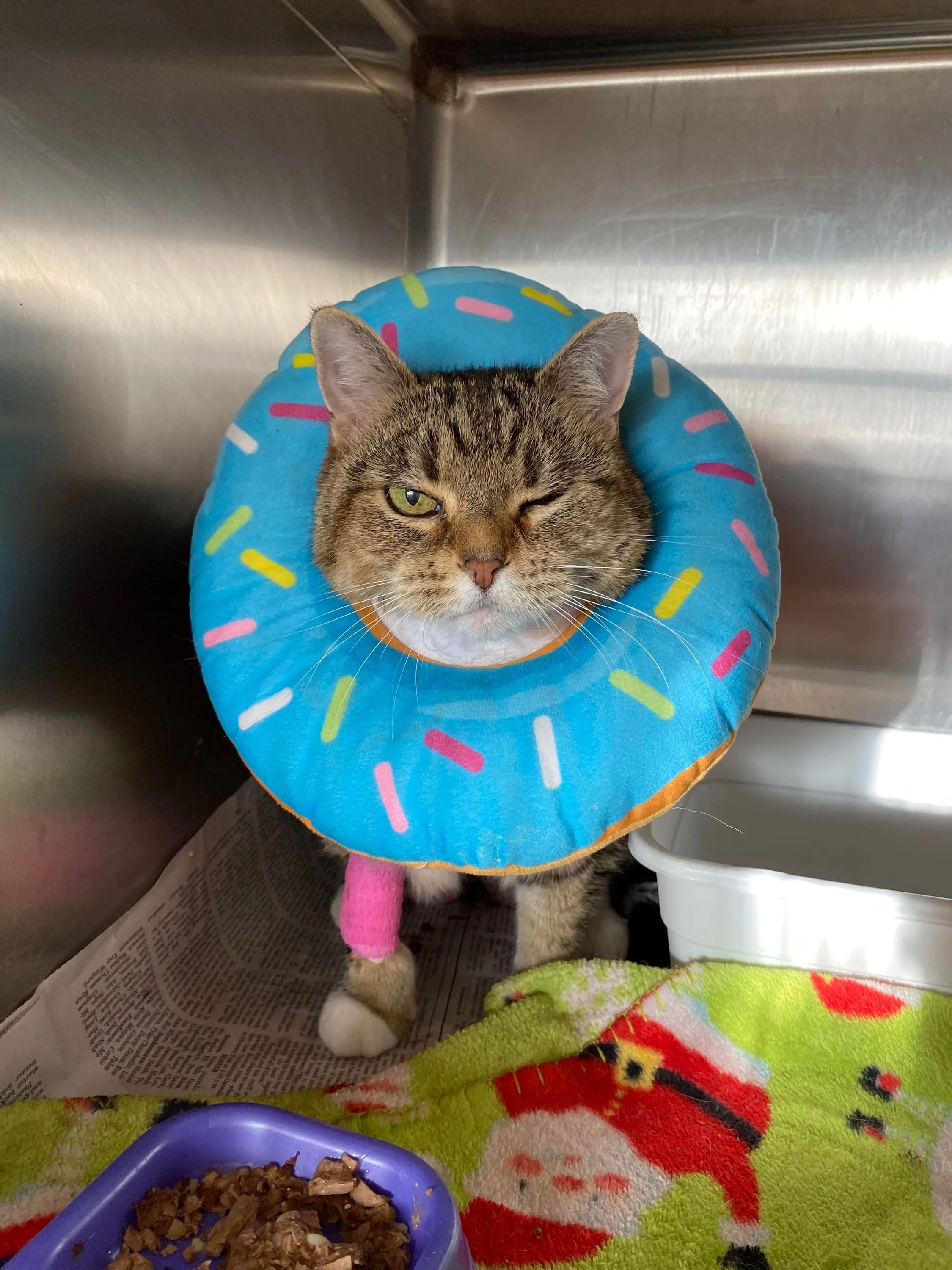All of our surgical procedures are scheduled. Emergency surgical procedures are available based on schedule and patient need, but are not guaranteed.
Common surgeries that our hospital performs on small animals include:
- Fracture Repair
- Exploratory Celiotomy
- Mass Removal
- C-Sections
- Puppy tails/dew claws (3-4 days of age only)
- Eye Enucleation
- Gastrotomy/Enterotomy (Foreign Body)
- Amputation
- Entropion Repair
- PennHip/OFA Radiography
- Gastropexy
- Ovariohysterectomy (Spay)
- Orchidectomy (Neuter)
- Comprehensive Oral Health Assessment and Treatment (Dental COHAT)
- Other surgical procedures may be offered based on patient need
At Drummond Animal Hospital, we recommend that all non-breeding cats and dogs be spayed or neutered. Spaying and neutering is essential for population control by reducing the amount of unwanted litters. Spaying eliminates the risk of ovarian cancer and pyometra, a deadly uterine infection, greatly reduces the risk of mammary carcinomas (breast cancer), and can help to eliminate unwanted behaviors surrounding the mammalian estrus (heat) cycle. Neutering eliminates the risk of testicular cancer and can help to eliminate unwanted behaviors associated with testosterone (humping, spraying, territoriality). Please discuss with your veterinarian about recommendations regarding when your pet should be spayed or neutered. While the ideal time to fix a dog varies on breed, we generally recommend that our cat patients be fixed as soon as possible.
Please call for any surgical estimate. Prices are highly variable, depending on patient age, weight, size, species, and contributing health factors.
All patients are required to have an initial visit at our hospital to establish a veterinary client patient relationship before scheduling any procedure. Initial visits can be combined with a routine wellness or vaccination appointment. At a pre-surgical visit, one of our veterinarians will determine if your pet is cleared to undergo your procedure. Your veterinarian will discuss with you any pre-existing health conditions, heart murmurs, or bloodwork abnormalities that may increase the risk of your pet’s surgery or cause for your pet’s surgery to be postponed, canceled, or referred to one of our local surgical and anesthetic specialists.
All patients over 2 years of age will be required to have pre-anesthetic blood work. Additional pre-anesthetic workup (electrocardiogram, additional bloodwork, radiographs) may be recommended.
Other Species (Rabbits, Pot Belly Pigs, etc.) - Surgical procedures for additional species are available on an individual basis
What happens when I drop my pet off for surgery at Drummond Animal Hospital?
When you drop your pet off for surgery at the side door at our hospital, a trained veterinary assistant will greet you and go over the necessary paperwork. (Though you may have to ring our doorbell for service if we are busy!). While highly unlikely, we require that ALL pets, regardless of risk, have a CPR consent form on file. After paperwork is completed, the veterinary assistant will set your pet up in an appropriately sized kennel with soft blankets for comfort. If you are dropping your pet off the night before a procedure, a small meal will be given to them. When it is your pet’s turn, the veterinarian will administer a sedation injection, and your pet will fall asleep over 10 - 20 minutes. After your pet is adequately asleep, an intravenous catheter will be placed, and your pet will be given additional sedation through their catheter. They will then be intubated to protect their airway, and put on the anesthetic gas. While all dogs are intubated, cats may receive a mask instead of an intubation tube depending on size, age, and procedure. From that point, a trained veterinary assistant will be monitoring your pet’s heart rate, respiratory rate, temperature, blood pressure, and anesthetic depth as the veterinarian performs the surgery. Pet patients are clipped, scrubbed, and draped in, while the veterinarian sterilely scrubs and gloves into the procedure. During the surgery, intravenous fluids will be given; though cats and dogs undergoing very short procedures may not require fluids. After the veterinarian finishes the procedure, your pet will either be allowed to wake naturally or be given a reversal agent. Appropriate pain management and antibiotics will be given intra-op and post-operatively if necessary. You will be called about your pet’s status after your pet is awake enough to lift their head and remove the intubation tube. Your pet is taken back to their kennel after they are awake and allowed to recover quietly in blankets. Your pickup time will be determined by the veterinarian.
Payments are due at the time of patient pickup.
